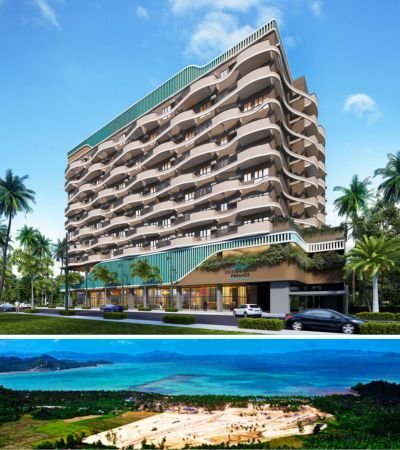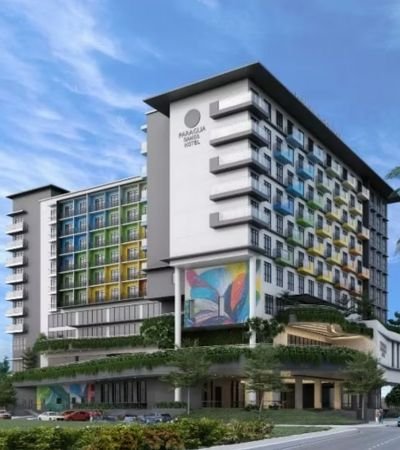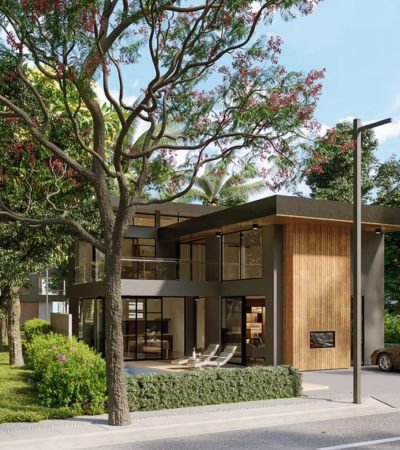Featured Hotel/Condo:

Palawan Condo for Sale
Let's Connect!
Looking for the perfect property or ready to make your next big move? Let’s connect and turn your real estate dreams into reality—reach out today!
Featured Hotel/Condo:

Buying a Condominium in Palawan: A Complete Guide to Opportunities, Risks and Safe Purchase
Palawan, renowned for its pristine beaches, dramatic landscapes and rich biodiversity, is increasingly becoming a hot spot for real estate development. With tourism on the rise and infrastructure improving, interest in condominiums – especially pre-selling projects – is growing. Whether you are a local resident looking for modern urban living, a retiree seeking a manageable space, or an investor seeking rental income from tourists, condominium ownership in Palawan presents both opportunities and challenges. This long-form guide aims to provide you with an unbiased, in-depth overview of the advantages and disadvantages of buying a condo in the province, and practical advice on how to proceed safely and responsibly.
The Rise of Condominiums in Palawan
For many years, Palawan’s real estate market was dominated by single-family homes, resorts and raw land. However, as Puerto Princesa City modernized and smaller municipalities like San Vicente began developing tourism infrastructure, demand for vertical living options began to emerge. Contemporary condominiums cater to professionals, families, expats and long-stay tourists who appreciate amenities such as swimming pools, gyms, co-working spaces and 24-hour security. The availability of condominium units also allows investors to participate in the flourishing tourism market without having to buy land or manage a stand-alone property.
Pre-selling condominiums, offered by developers before construction is completed, are particularly appealing. Pre-selling units often come at a lower price, flexible payment terms and the chance to choose preferred layouts. However, they also carry risks associated with project delays, changes in plans and developer reliability. To ensure your investment is sound, it is essential to understand the full landscape of condominium ownership in Palawan.
Benefits of Buying a Condo in Palawan
Let’s begin with the advantages. Condominiums provide unique benefits compared to other types of property in Palawan, especially for people whose lifestyles or investment goals align with what these properties offer.
1. Modern Living in a Tropical Paradise
A condominium combines the convenience of urban amenities with access to Palawan’s natural attractions. Residents can live close to shopping centers, restaurants, airports and hospitals, while still being within driving distance of beaches, diving sites and nature reserves. Modern condominiums in Puerto Princesa often feature contemporary designs, spacious units, energy-efficient systems and smart home features. For individuals who want to enjoy island living without sacrificing urban comforts, condos provide the best of both worlds.
2. Amenities and Services
Condominiums typically offer shared amenities such as swimming pools, fitness centers, function rooms, rooftop gardens, play areas and lounges. These facilities contribute to a resort-like lifestyle, making daily living enjoyable and convenient. Common services may include property management, concierge services, security, garbage disposal and routine maintenance. These features are particularly appealing to busy professionals, retirees or frequent travelers who may not have time to manage upkeep themselves.
3. Entry Point for Real Estate Investment
Palawan’s booming tourism industry presents an opportunity to invest in rental properties. Condominium units are relatively more affordable than land or houses. They can be rented out on a long-term basis to residents or on a short-term basis to tourists, generating passive income. Pre-selling units may appreciate significantly by the time construction is finished, providing capital gains. Additionally, the availability of flexible payment terms and financing options makes it accessible to a wider range of buyers.
4. Accessibility and Connectivity
New condominium projects are usually located in strategic areas near airports, seaports, government offices and commercial establishments. In Puerto Princesa, developments are often situated along major roads such as Rizal Avenue and the Puerto Princesa North Road. In smaller municipalities like San Vicente, condos are located near emerging tourist zones and future infrastructure projects. This proximity enhances convenience and ensures that your property remains attractive to tenants or future buyers.
5. Lifestyle Flexibility
Condominiums require less maintenance compared to single-family homes. There is no yard to mow, no roof to replace and fewer responsibilities for structural repairs. This makes condos ideal for people who travel frequently, retirees who want to downsize, or investors who plan to rent out the units rather than occupy them full-time. The lock-and-leave convenience of a condo allows you to explore Palawan or travel abroad without worrying about the security and upkeep of your property.
Potential Drawbacks of Buying a Condo
Despite the benefits, condominium ownership is not for everyone. Before committing, consider the potential disadvantages and how they may affect your lifestyle or investment plans.
1. Homeowners’ Association (HOA) Fees
Condominiums charge monthly homeowners’ association fees to cover maintenance, security, utilities in common areas and staff salaries. These fees vary depending on the amenities and size of the project. In Palawan, fees may be lower than in major cities, but they still represent an ongoing cost that can increase over time. Before buying, check the projected HOA fees and factor them into your budget. High fees can erode rental income and overall return on investment.
2. Limited Control Over Building Policies
Condo owners must comply with the condominium corporation’s rules and regulations, which cover everything from pet policies to renovation guidelines. You will have less freedom to alter your unit’s exterior, hang signage or make structural changes. Some investors see this as a drawback because it restricts customization or business activities such as short-term rentals if the condo board imposes restrictions. Always review the Master Deed and Declaration of Restrictions before purchasing to ensure the rules align with your plans.
3. Potential for Overdevelopment
Palawan’s popularity has led to a surge in development proposals. If too many projects are approved, it could result in oversupply, causing slower capital appreciation or increased competition in the rental market. Areas like Puerto Princesa may see more high-rise buildings in the future, which could affect views and the overall environment. Investors should consider market saturation risks and choose projects with unique selling points, sustainable designs and reputable developers.
4. Dependence on Developer Reputation
Buying a pre-selling unit means trusting that the developer will deliver the promised quality and on-time completion. Delays and unexpected changes in design or amenities can happen. In extreme cases, projects might be cancelled or scaled down if the developer encounters financial or legal issues. While this risk is not unique to Palawan, it underscores the need for due diligence. Check the developer’s track record, financial health and previous projects before investing.
5. Resale and Liquidity Risks
Condominium units can be harder to resell than stand-alone houses, especially if there are many similar units available. Your ability to sell at a good price depends on market conditions, location and the desirability of the development. In tourist-driven markets, demand may fluctuate seasonally or due to changes in travel patterns. Be prepared to hold the property long-term or have a plan for generating consistent rental income instead of relying on a quick sale.
Legal Framework: Condominium Ownership in the Philippines
Understanding the legal aspects of condominium ownership is crucial. The Philippines has specific laws governing condominium projects, how they are developed and how ownership is structured. Here are the key points you need to know before buying.
The Condominium Act and Ownership Structure
Condominium ownership in the Philippines is primarily governed by Republic Act No. 4726, known as the Condominium Act. This law allows individuals to own an individual unit in a building, along with an undivided interest in the common areas. When you purchase a condo, you receive a Condominium Certificate of Title (CCT) for your specific unit, not a traditional land title. The land itself is owned collectively by all unit owners via the condominium corporation. This structure defines the rights and obligations of owners regarding common areas, fees and building management.
Foreign Ownership Restrictions
Foreigners are permitted to own condominium units in the Philippines, but only up to 40% of the units in a project may be owned by foreigners. This is because land ownership remains restricted to Filipino citizens and corporations with majority Filipino ownership. Foreigners considering a condo purchase should confirm that the project has not reached its foreign ownership quota. Always check the developer’s sales records and the condominium’s stock structure to ensure compliance.
The Need for a Condominium Corporation
A condominium corporation is a legal entity composed of all unit owners. It manages the common areas, enforces rules and collects HOA fees. To function legally, it must be registered with the Securities and Exchange Commission (SEC) and run by a board of directors elected from among the unit owners. Make sure the developer has set up the condominium corporation properly, and that there are clear provisions for the eventual turnover of management from the developer to the owners.
Licensing and Permits
Before developers can sell pre-selling units, they must secure a License to Sell from the Department of Human Settlements and Urban Development (DHSUD). The license assures buyers that the project has complied with zoning, building and financing requirements. Always ask for a copy of the License to Sell. Additionally, developers need permits from local government units, environmental clearances for certain projects, and proof that land ownership is legitimate.
Contract to Sell and Deed of Absolute Sale
When buying a pre-selling unit, you typically sign a Contract to Sell outlining payment terms, unit specifications, completion timeline and remedies if the developer fails to deliver. Once the unit is completed and you have paid the full purchase price, you execute a Deed of Absolute Sale, and the Condominium Certificate of Title is transferred to your name. It’s important to scrutinize the terms of these contracts, as they govern your rights and the developer’s obligations.
How to Safely Buy a Condo in Palawan
To ensure a smooth and secure transaction, follow these steps and recommendations. Taking shortcuts in the due diligence process can lead to delays, financial loss or ownership disputes.
1. Identify Your Goals and Budget
Start by clarifying why you want to buy a condo. Are you looking for a vacation home, a primary residence or an investment? Your goals will influence the location, size and amenities you choose. Determine your budget, including the down payment, financing, closing costs, furnishings and HOA fees. Also consider long-term costs such as property taxes, insurance and potential special assessments for building upgrades.
2. Research Locations and Project Types
Different locations within Palawan offer different advantages. Puerto Princesa is the provincial capital, with more urban amenities, schools and healthcare facilities. Condominium projects here may cater to professionals and families, as well as tourists. San Vicente, known for its long white beach and emerging tourism hub, may appeal to investors seeking appreciation potential. Research the infrastructure plans, proximity to attractions, crime rates and neighborhood demographics. Consider whether you prefer a high-rise building in a bustling district or a mid-rise development near the beach.
3. Verify Developer Credibility
Before committing, look into the developer’s track record. Have they completed other projects on time? What do reviews from buyers of previous projects reveal? Check the developer’s financial statements and corporate status via public records. Visit their completed developments if possible. Reliable developers often have transparent sales processes, clear documentation and well-maintained properties. If a developer is new, assess whether they have strong financial backing and credible partners.
4. Check the License to Sell
Only buy from projects that have obtained a License to Sell from DHSUD. This license indicates that the developer has complied with regulatory requirements and that the project is legally allowed to sell units. Avoid transactions based solely on reservation agreements before the license is issued. Without a License to Sell, you risk buying into an unregulated project that may never materialize or could be shut down by authorities.
5. Review Contracts Thoroughly
Read the Contract to Sell carefully, paying close attention to unit specifications, payment schedules, penalties, turnover dates and warranty provisions. Ensure that the developer’s obligations are clear and that there are clauses protecting you in case of delays or changes. Check if the contract allows for refunds or compensation. When units are completed, review the Deed of Absolute Sale and Condominium Certificate of Title for accuracy before signing. You may enlist a lawyer to review these documents.
6. Evaluate the Master Deed and Rules
The Master Deed contains the blueprint of the condominium, including unit boundaries, the designation of common areas and restrictions. The House Rules or Declaration of Restrictions specify what owners can and cannot do within the property. These documents may affect whether you can rent your unit on a short-term basis, how many occupants can live in a unit, what types of renovations are allowed and whether pets are permitted. Make sure the rules align with your lifestyle and investment strategy.
7. Visit the Site and Model Units
If possible, visit the project site and inspect model units. Visualize the unit’s space, layout and the quality of materials used. Check the surrounding area for noise, traffic, smells or potential hazards. Ask about the unit’s orientation, which affects sunlight, views and privacy. Visiting during different times of day helps you understand the building’s environment and how it changes.
8. Inquire About Financing Options
Condominiums may be financed through developer in-house financing or bank loans. Developers sometimes offer payment plans with small down payments and monthly installments during construction. Bank loans typically require at least a 20% down payment, stable income and good credit history. Compare interest rates, payment terms and total costs. Some banks might offer lower rates for green-certified buildings or projects in growing markets like Palawan. Choose the option that aligns with your financial situation.
9. Understand Taxes and Fees
In addition to HOA fees, be aware of tax obligations. The buyer typically pays the Documentary Stamp Tax, transfer tax and registration fees. Local government units impose annual real property taxes. Plan for these expenses so you don’t encounter unexpected costs after purchase. Developers sometimes include miscellaneous fees for title transfer and move-in charges; ask for a breakdown.
10. Consider Hiring a Licensed Broker and Legal Counsel
A licensed real estate broker can guide you through the entire process, from unit selection to paperwork. They have access to verified listings, knowledge of market trends and expertise in negotiating terms. Lawyers specializing in real estate can review contracts, ensure compliance with regulations and represent your interests if disputes arise. Working with professionals reduces the likelihood of errors, scams or missed legal considerations.
Pre-Selling vs. Ready-for-Occupancy (RFO) Units
One of the key decisions you will make is whether to buy a pre-selling unit or a ready-for-occupancy unit. Each option has benefits and challenges.
Pre-Selling Units
Advantages: Pre-selling units are typically priced lower than completed units. Developers often offer flexible payment plans during construction, which can make it easier to manage cash flow. Early buyers may have the freedom to choose prime units and customize finishes. As the project nears completion, the value of the unit may increase, offering capital appreciation.
Challenges: Pre-selling purchases involve waiting for the project to be completed, which can take several years. There is also a risk of delays, changes in design or even cancellations if the developer encounters financial or regulatory problems. Buyers must be comfortable with the uncertainty and should verify the developer’s reputation and financial stability before committing.
Ready-for-Occupancy (RFO) Units
Advantages: RFO units are ready to use or rent immediately upon purchase. You can inspect the actual unit, know exactly what you are getting and avoid construction delays. This option is suitable for buyers who need immediate housing or who want to start generating rental income quickly.
Challenges: RFO units are usually more expensive than pre-selling units. The payment terms may be less flexible, requiring a larger down payment or full payment upfront. Available units may be limited in number, location or layout, giving you less choice.
Condominium Trends in Puerto Princesa and San Vicente
Without naming specific projects, we can discuss some general trends in these areas.
Puerto Princesa
The provincial capital is the hub of commerce, government and education in Palawan. Its growing population and tourist arrivals drive demand for vertical housing. New projects often cater to professionals, students, retirees and tourists. They are typically located along major roads, near shopping centers or close to scenic coastal areas. Developers emphasize modern amenities, security and accessibility to commercial establishments. Some projects may incorporate green features such as energy-efficient systems, rainwater harvesting and landscaped open spaces to appeal to environmentally conscious buyers.
San Vicente
San Vicente is known for its long white beach and ambitious master plan to develop the area into a tourism hub. The local government’s vision includes sustainable development, low-impact resorts and residential communities that blend with nature. As such, condominium projects in San Vicente are generally low- to mid-rise, designed to maintain the town’s charm. They may offer views of the sea, easy access to beaches and integration with resort facilities. Investors are attracted by the long-term potential of an emerging destination, though they must be mindful of supply, infrastructure and local regulations.
Importance of Developer Reputation and Project Quality
While it may be tempting to focus solely on price or location, the credibility of the developer and the overall quality of the project are key factors. High-quality construction ensures the safety and longevity of the building. Reputable developers adhere to building codes, use durable materials and collaborate with respected architects and engineers. They also manage their finances responsibly, reducing the risk of abandonment or delays. Project quality also extends to design, layout, environmental integration and community facilities. A well-designed condominium with a thoughtful master plan will maintain its value better over time and remain attractive to tenants and buyers.
Maximizing Your Condo Investment
Once you own a condominium unit, there are ways to maximize its financial and personal value.
Long-Term Leasing
Renting your unit to long-term tenants provides steady income. Long-term leases are less labor-intensive than short-term rentals, making them ideal for busy owners or those living abroad. You still need to ensure that tenants comply with condo rules and maintain the unit’s condition. Setting competitive rental rates and offering furnished or semi-furnished options can attract quality tenants, such as professionals working in Puerto Princesa or expatriates staying in Palawan for extended periods.
Vacation Rentals
Platforms that enable short-term rentals have opened up another income stream for condo owners. Visitors seeking comfort, affordability and convenience prefer renting condos over hotels. However, confirm whether your condominium’s rules allow short-term rentals. You will also need to handle bookings, cleaning and guest communication. Alternatively, you can hire a property management company to handle these tasks in exchange for a portion of the rental income.
Resale Strategies
If your goal is to sell the unit in the future, timing and market conditions are important. Monitor real estate trends in Palawan and nationwide. Selling during peak tourism seasons may attract investors looking for immediate rental income. However, ensure that you complete any required occupancy periods or developer restrictions. To make your unit more appealing, keep it well-maintained, updated and neutrally decorated. A clean, move-in ready unit can command a higher resale price.
Personal Use and Lifestyle
Some buyers choose to live in their units for a portion of the year and rent them out when not in use. This arrangement allows you to enjoy the condo’s amenities and Palawan’s natural beauty on your schedule, while generating income at other times. Such flexibility is one of the key benefits of condominium ownership, provided that the condominium corporation permits it and that you manage bookings effectively.
Condominium Ownership and Community Impact
Condo developments can have positive or negative effects on local communities. Responsible buyers and developers can contribute to sustainable growth, while careless practices can strain resources and alienate residents.
Supporting Local Economies
Condominiums create jobs during construction and operation. They generate demand for local services such as cleaning, maintenance, security, transportation, food supply and entertainment. As a condo owner, you can further support the local economy by hiring local staff, sourcing goods and services within the community, and partnering with local businesses. Encouraging guests or tenants to visit nearby attractions and patronize local establishments ensures that benefits are spread across the community.
Environmental Considerations
Condominium development should not compromise Palawan’s natural environment. Engage developers with sustainable practices: proper waste management systems, energy-saving technologies, rainwater harvesting and low-impact design. As a homeowner, reduce energy and water consumption, segregate waste and educate tenants or guests about environmental stewardship. If community members see that condo owners care about the environment, it builds goodwill and supports sustainable tourism.
Cultural and Social Respect
Responsible condo buyers respect local cultures and traditions. Palawan is home to diverse communities, and it’s important to be mindful of local customs and festivals. Engage with neighbors and participate in community activities. Support cultural preservation efforts, such as museums, local art and indigenous crafts. Respect community decisions about land use and development, and advocate for projects that balance progress with preservation. Being a good neighbor fosters harmony and enhances the overall experience of owning property in Palawan.
Tips to Encourage Responsible Condo Buying
To encourage people to invest safely and responsibly in condominiums, consider these practical guidelines:
- Do your homework: Research the developer, location and market trends thoroughly. Due diligence protects your investment and helps you make informed decisions.
- Prioritize sustainability: Choose developments that minimize environmental impact and promote eco-friendly living.
- Engage professionals: Work with licensed real estate brokers, lawyers and financial advisors to ensure compliance and avoid scams.
- Prepare for the long term: Understand that real estate is a long-term investment. Plan for potential delays and fluctuations in market conditions.
- Respect local regulations: Adhere to condominium rules, building codes, environmental laws and cultural norms.
- Contribute to the community: Support local businesses, hire local staff, and engage in initiatives that benefit the surrounding area.
Investing in Your Own Piece of Paradise
Buying a condominium in Palawan is a significant decision that requires careful consideration. The province’s stunning natural beauty, burgeoning tourism industry and improving infrastructure make it an attractive destination for real estate investors and individuals seeking a better quality of life. Condominiums offer modern amenities, convenience and potential income, but they also involve legal complexities, fees and market risks.
To make a smart purchase, you must understand the legal framework, choose reputable developers, carefully review contracts and abide by the rules of the condominium corporation. Professional guidance from licensed brokers and lawyers is invaluable. By prioritizing sustainability, respecting local communities and planning for the long term, you can enjoy the benefits of condo ownership while contributing to Palawan’s growth in a positive way.
Ultimately, investing in a condo in Palawan is not just a financial endeavor but a lifestyle choice. Done responsibly, it allows you to become part of a dynamic community, enjoy access to world-class natural wonders and create a legacy of stewardship in one of the Philippines’ most treasured provinces.
Top Selling Properties
SanVicente Realty
+63 938 211 [VIEW]





